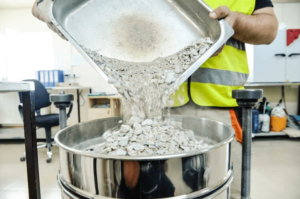Finding top-tier talent to close deals is one of the most important investments any business can make. Whether you’re selling high-ticket services or growing a scalable B2B sales pipeline, the ability to hire sales closers who can consistently seal the deal can make or break your revenue goals. Sales closers are not just talkers—they’re conversion specialists who know how to overcome objections, build urgency, and turn prospects into paying customers.
If your business is struggling to convert leads or increase revenue from existing traffic sources, it’s time to take a closer look at the impact professional closers can bring to your bottom line.
What Defines a Great Sales Closer?
The best closers are far more than smooth talkers. They understand buyer psychology, build trust rapidly, and follow a structured, persuasive sales process. What separates them from average salespeople is their ability to confidently handle objections, remain composed under pressure, and ask for the sale without hesitation.
They’re masters of emotional intelligence. Great closers know when to speak, when to pause, and when to pivot based on the tone and body language of the prospect—even on Zoom calls. They listen deeply, identify pain points quickly, and communicate the offer in a way that feels aligned with the buyer’s needs.
Hiring someone with these traits isn’t always easy. That’s why working with trained professionals who specialize in closing is one of the smartest moves for businesses aiming to scale fast.
Why Businesses Hire Sales Closers to Scale Revenue
Companies that hire sales closers are often those who have leads but can’t convert at a high enough rate to make their marketing spend profitable. This is especially common in industries such as coaching, consulting, SaaS, and agency services—where the average deal size is significant and buyer trust is critical.
By hiring professional closers, these businesses see immediate improvements in their sales metrics. Conversion rates go up. Follow-up becomes more consistent. Pipeline management becomes smoother. And sales teams can finally focus on what matters most—closing qualified opportunities instead of chasing uninterested leads.
Professional closers also allow founders and CEOs to step back from sales calls and focus on growth. With a skilled closer handling conversations, leadership can focus on product development, partnerships, or operations without worrying about stalled deals.
Key Qualities to Look for When You Hire Sales Closers
When reviewing candidates or agencies that offer sales closers, there are a few non-negotiable traits that signal a high-performing closer:
- Proven track record of closing high-ticket deals
- Exceptional objection-handling skills
- Familiarity with CRM systems and follow-up workflows
- Strong communication and rapport-building skills
- Ability to work independently and meet targets without micromanagement
It’s also important to evaluate their alignment with your brand’s tone and target audience. For example, a closer selling real estate investment deals will use a different tone and structure than one closing online course sales. The closer must not only believe in the offer but also mirror the style and communication preferences of your ideal client.
Where to Find Skilled Sales Closers
There are several ways to hire sales closers depending on your budget, urgency, and industry. Here are the most common options:
- Commission-Only Sales Platforms: These platforms match companies with freelance closers willing to work purely on commission. It’s a great low-risk option for businesses looking to scale sales without upfront salaries.
- Sales Staffing Agencies: These firms specialize in recruiting pre-vetted closers with experience in your niche. They often provide additional training and accountability, making it easier to ensure performance.
- Referrals from Sales Communities: Many business owners find talented closers through online groups, masterminds, or communities dedicated to high-ticket selling. These are often experienced professionals looking for new opportunities.
- LinkedIn and Remote Job Boards: You can also post commission-based sales roles on job boards, though this route often brings in a high volume of unqualified applicants. Filtering for quality becomes key.
Choosing the right channel depends on how quickly you need a closer, how much control you want in the hiring process, and whether you’re comfortable managing them directly or prefer someone else to oversee performance.
Mistakes to Avoid When Hiring Sales Closers
Hiring the wrong closer can cost your business more than just missed sales—it can damage brand reputation, waste leads, and slow growth. To avoid costly mistakes, steer clear of:
- Hiring based on charisma alone: Confidence matters, but without structure and skill, deals fall through.
- Not setting clear KPIs and expectations: Even talented closers need clear goals and benchmarks.
- Failing to train closers on your product or audience: A closer who doesn’t understand your offer won’t convert consistently.
- Relying on one closer without backups: Salespeople are human—they get sick, burnt out, or move on. Always have a bench or agency partner ready.
Benefits of Outsourcing Sales Closers for Remote Businesses
Remote companies are increasingly choosing to outsource closers to handle inbound and outbound sales. This model allows flexibility, reduces overhead, and taps into a global talent pool of experienced closers.
Outsourced closers can be onboarded quickly and often bring their own sales playbooks. For companies with marketing systems that generate daily leads, this can mean faster ROI and shorter sales cycles. Whether you run a digital agency, an online coaching business, or a SaaS product, outsourcing sales closers can help you build predictable revenue without increasing your internal headcount.
How to Train and Onboard Closers for Maximum Performance
Even the best closer needs to be trained on your specific product, market, and ideal customer. When you hire sales closers, invest the time to give them the right tools and information. This includes:
- Recorded sales calls that show what works
- A clear outline of your offer’s value and benefits
- Common objections and how you handle them
- CRM access and lead tracking processes
- A system for regular performance reviews and feedback
Ongoing communication ensures that closers stay aligned with your goals and that any issues are addressed before they affect your pipeline. Treat your closers as revenue partners, not just contractors.
FAQ: Hiring Sales Closers
What does a sales closer do differently than a regular salesperson?
A closer specializes in taking leads who are already somewhat interested and turning them into customers. Their focus is on the final steps of the sales process—handling objections, building urgency, and asking for the sale.
Is it better to hire commission-only closers or full-time employees?
It depends on your business model and cash flow. Commission-only closers are ideal for performance-based roles, while full-time hires may be better if you need someone to manage a team or handle long sales cycles.
How much should I pay a sales closer?
Commission rates vary by industry but typically range from 10% to 20% of the closed deal value. Some closers may charge setup fees or require a base retainer depending on their experience and workload.
Can sales closers work remotely?
Yes, many closers specialize in remote selling using video calls, CRMs, and digital follow-up systems. This makes them perfect for online businesses and remote teams.
How long does it take for a new closer to start generating results?
Most closers can start closing within 2 to 4 weeks if they receive proper onboarding, product training, and leads. Time to ROI depends on your average sales cycle and how warm the leads are.







